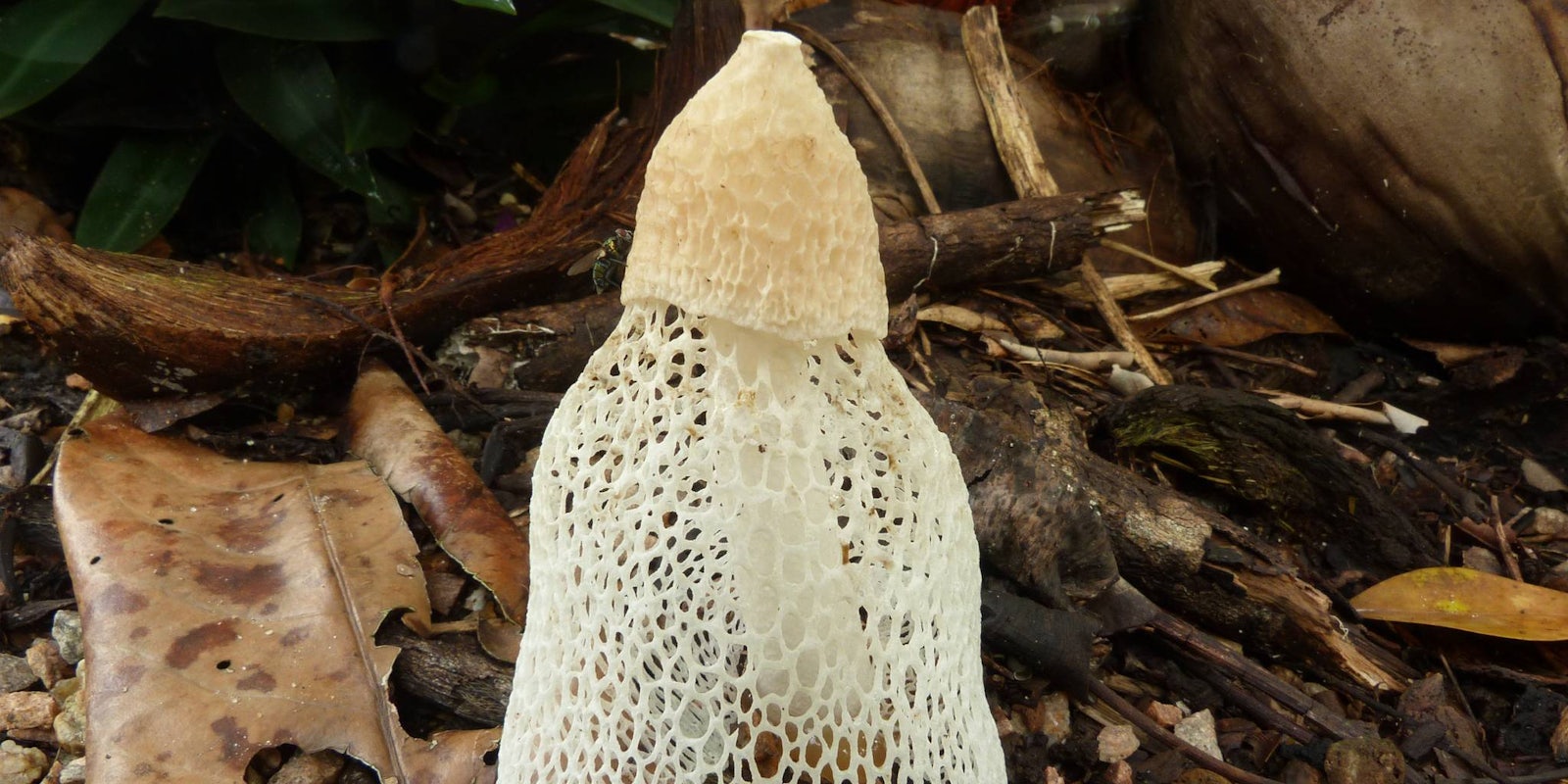It’s the story that just won’t die. Every so often, headlines read that a rare, foul-smelling fungus has the magical ability to send women into “earth-shattering” orgasms.
But the only thing miraculous about this mushroom is that the study that birthed this idea has never been followed up. And it really needs to be, because as far as scientific studies go, it’s pretty terrible. Of course that hasn’t stopped several outlets from claiming the mushrooms are the real deal.
In 2001, mycologists John Holliday and Noah Soule discovered a new species stinkhorn fungus in the lava flows around Hawaii. They were on the lookout for the species, they wrote in the International Journal of Medicinal Mushrooms, because they had heard rumors of such a mushroom’s aphrodisiac properties.
So they found it, let some people sniff it, and a few of the women reported a “spontaneous orgasm.” There aren’t really any more details in the report of the study that we found, but when Snopes and ScienceAlert debunked this study when it went viral in 2015, both reported that 16 women and 20 men were involved in the study. According to them, six of the women experienced “mild” orgasms and the rest of the women reported an increase in heart rate. All of the men found the smell disgusting and experienced no sexual arousal.
There are a lot of holes in this study. First of all, the researchers state that they were motivated to find this mushroom based on its purported aphrodisiac properties. That might not be a huge source of bias, except that Holliday runs a business selling mushroom-based dietary supplements that promise a host of health benefits not vetted by the Food and Drug Administration. He doesn’t appear to sell any sort of aphrodisiac or marital aid on the site, but it seems reasonable to assume he might have been looking for a new product while conducting this study.
Moreover, the study makes no mention of how they found the volunteers for the study or what they told they prior to smelling the mushroom. It’s possible they told the volunteers that the mushroom might induce sexual arousal or even an orgasm. If they did, that creates the potential for response bias: a phenomenon where volunteers in a psychological study will feign or even believe they’re experiencing a positive effect out of a desire to help the scientists find what they’re looking for. In other words, the women who experienced something may have felt some sort of sexual arousal—or claimed they did—because the researchers may have said that’s what they were hoping to find. We just don’t know.
Not to mention that orgasms, and particularly female orgasms, have a very large psychological component. In a world where people can voluntarily think their way to orgasm, it’s not unreasonable to think women primed to believe a mushroom will make them orgasm with then orgasm after smelling it.
Sorry to burst your fungal bubble.


